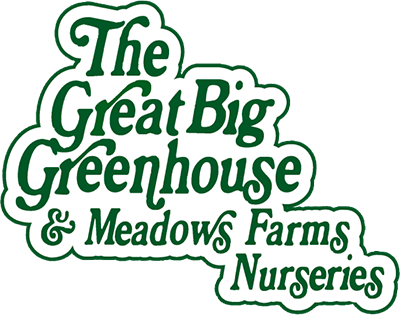ARE YOU READY?
Here we are in mid-April. I carefully watch our weather and our extended forecast to correctly advise customers on vegetable gardening. With Virginia weather consistently breaking now (fingers crossed), many Virginians are turning their attention, once again, to vegetable gardening.
I am writing this blog on April 11th. Every day, I tell people that our average last frost date is April 20th. The 20th is still next week. But our extended weather forecast has us warming up into the 80s next week, with our night lows in the 50s. So, I think we are safe to proceed with planting our vegetables. But watch the weather for the remainder of April so we don’t have a late cold snap.
In addition, I just did a soil temperature test this morning. Our soil temperature is now 59 degrees. This temperature and our warming air really open the door to planting.
Vegetable gardening can be done in raised beds, containers, or a traditional garden plot. Personally, I now grow my vegetables and herbs in containers, and I love it.
My first advice: Develop a plan for your vegetable garden. Decide what type of vegetables and herbs you want to grow. Here are some thoughts to think about when developing your garden:
- SOIL TEST: This is very important with a traditional garden plot. For success, you need to know your soil and its makeup. Healthy soil leads to healthy plants.
- AMEND THE SOIL: I always encourage enriching the existing soil with organic matter such as composted cow manure, mushroom compost, or earthworm castings. Our region typically has clay soil, and this clay can benefit from the addition of organic matter.
- ORGANIC?: You need to decide if growing organic is essential to you. We sell lots of organic products and organically grown vegetables. You want to eliminate the use of herbicides and pesticides in your garden.
- FLOWERS: Companion annual flowers, such as Marigolds, Alyssum, Zinnia, Heliotrope, etc., to help encourage bees to your garden.
- WEED CONTROL: Weed growth can be challenging for many vegetable gardeners. Now is the time to consider weed management. Hand-pulling goes a long way. Also, mulch is one of the most effective weed control tactics we can employ in vegetable gardens.
- FERTILIZER: There are many great organic food sources for vegetable plants. Espoma has a wonderful line of organic food for the vegetable garden. And, there are others such as fish emulsion.
- WATERING: Be aware of the soil’s dryness. Water when needed. A soaker hose is a very good method for watering, and it is water-wise, resulting in less evaporation.
I purposely did not go into great detail. If I had, I would still be writing this blog “novel.” Come see us. We have everything you need to get started and everything you need to be successful.
HAPPY VEGETABLE GARDENING & PLANT A LITTLE HAPPINESS!!!!!!!!!!!!!!!!!!!

